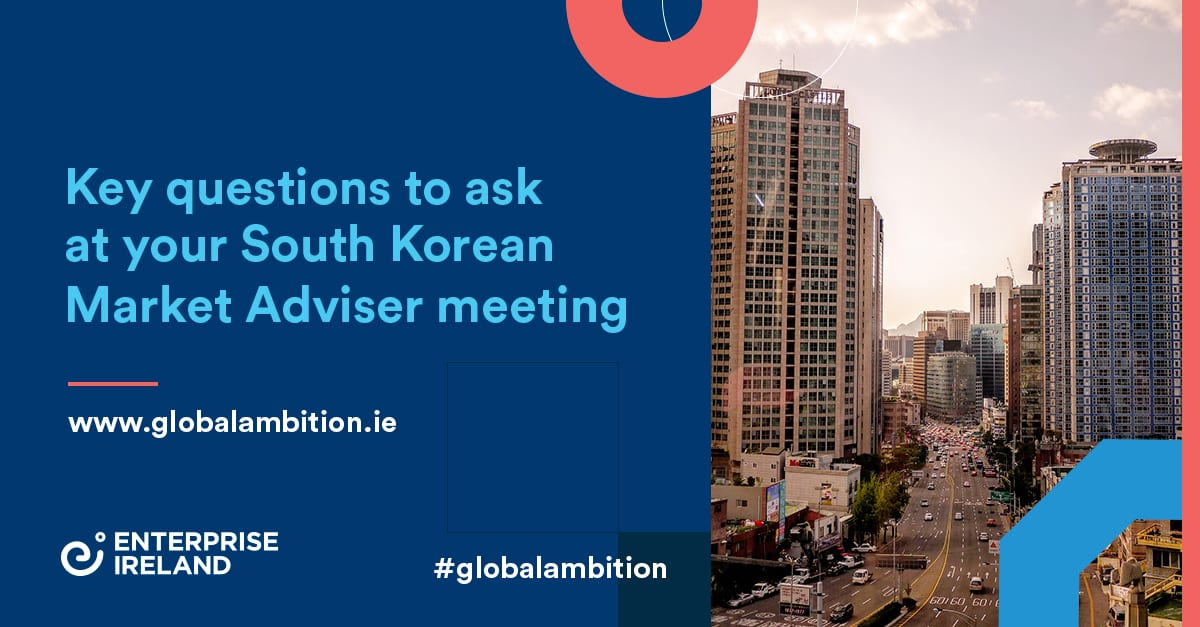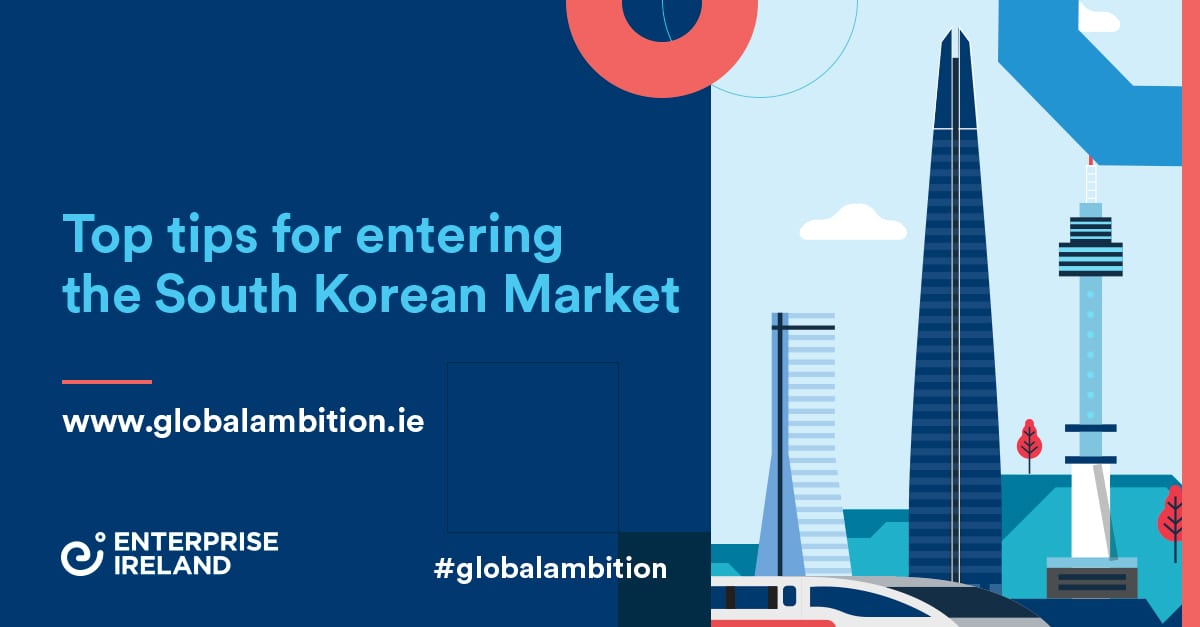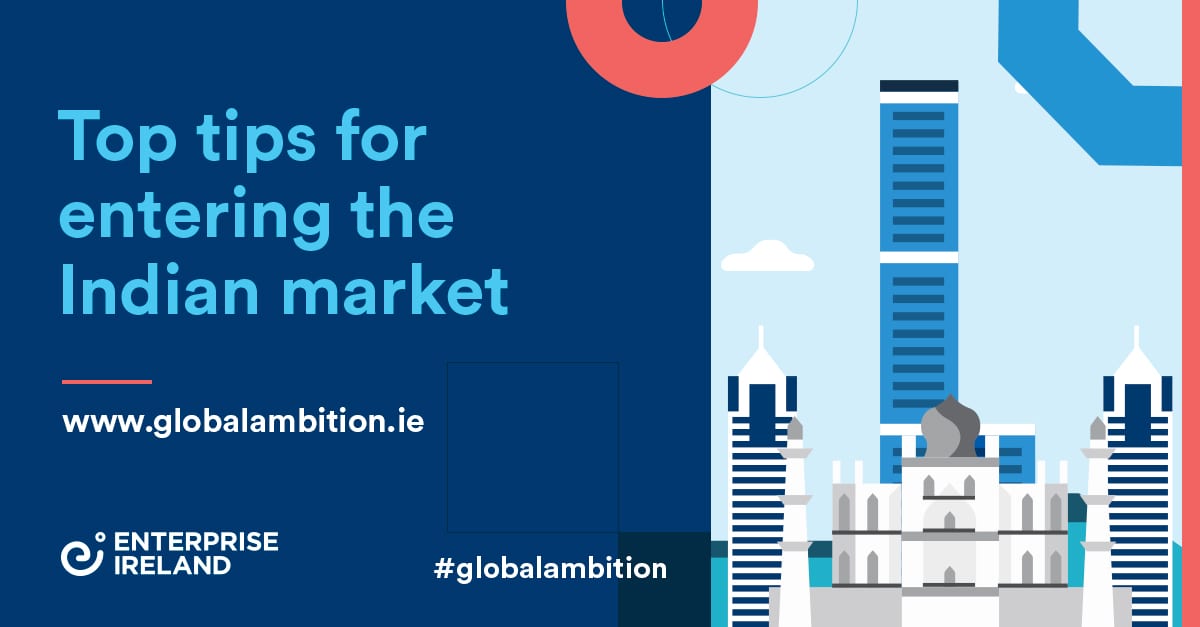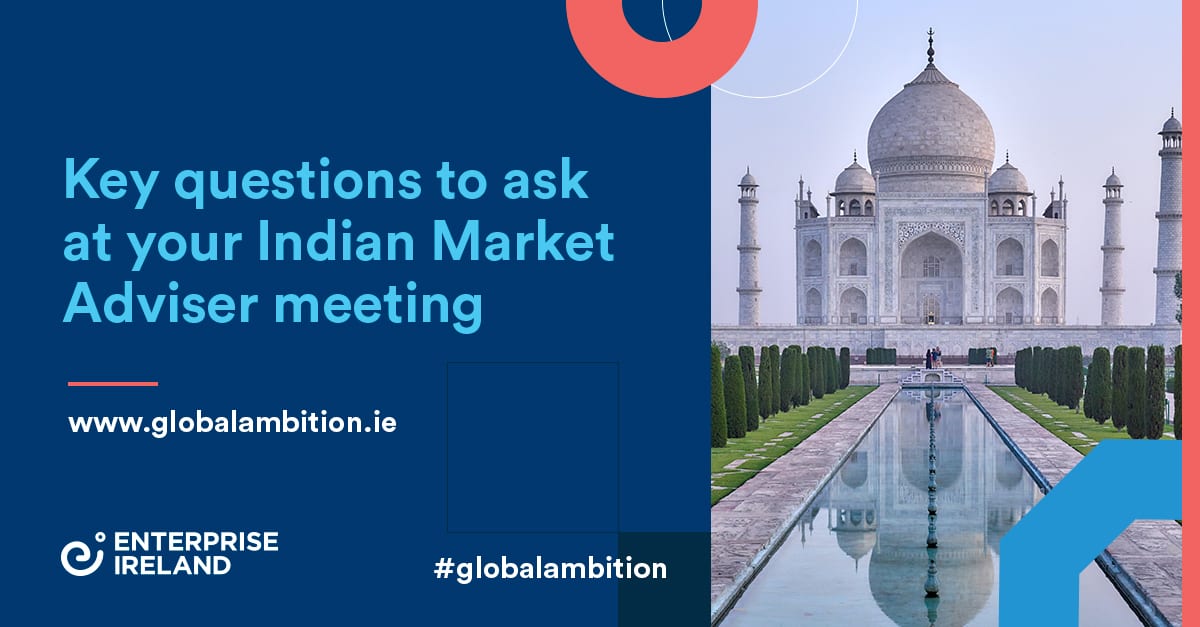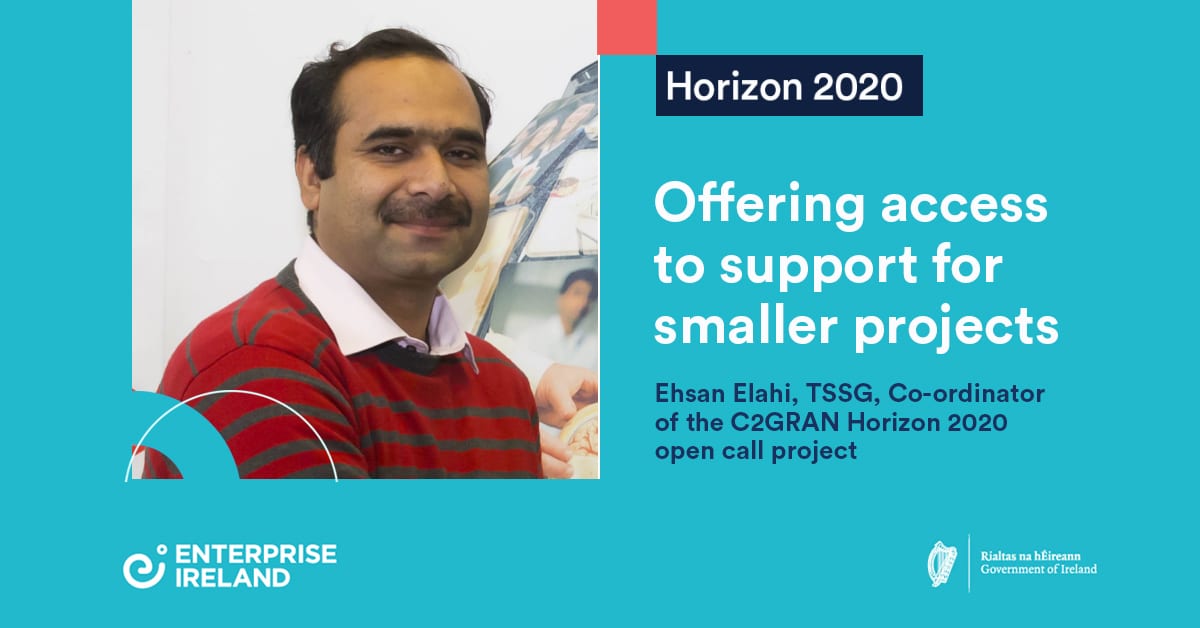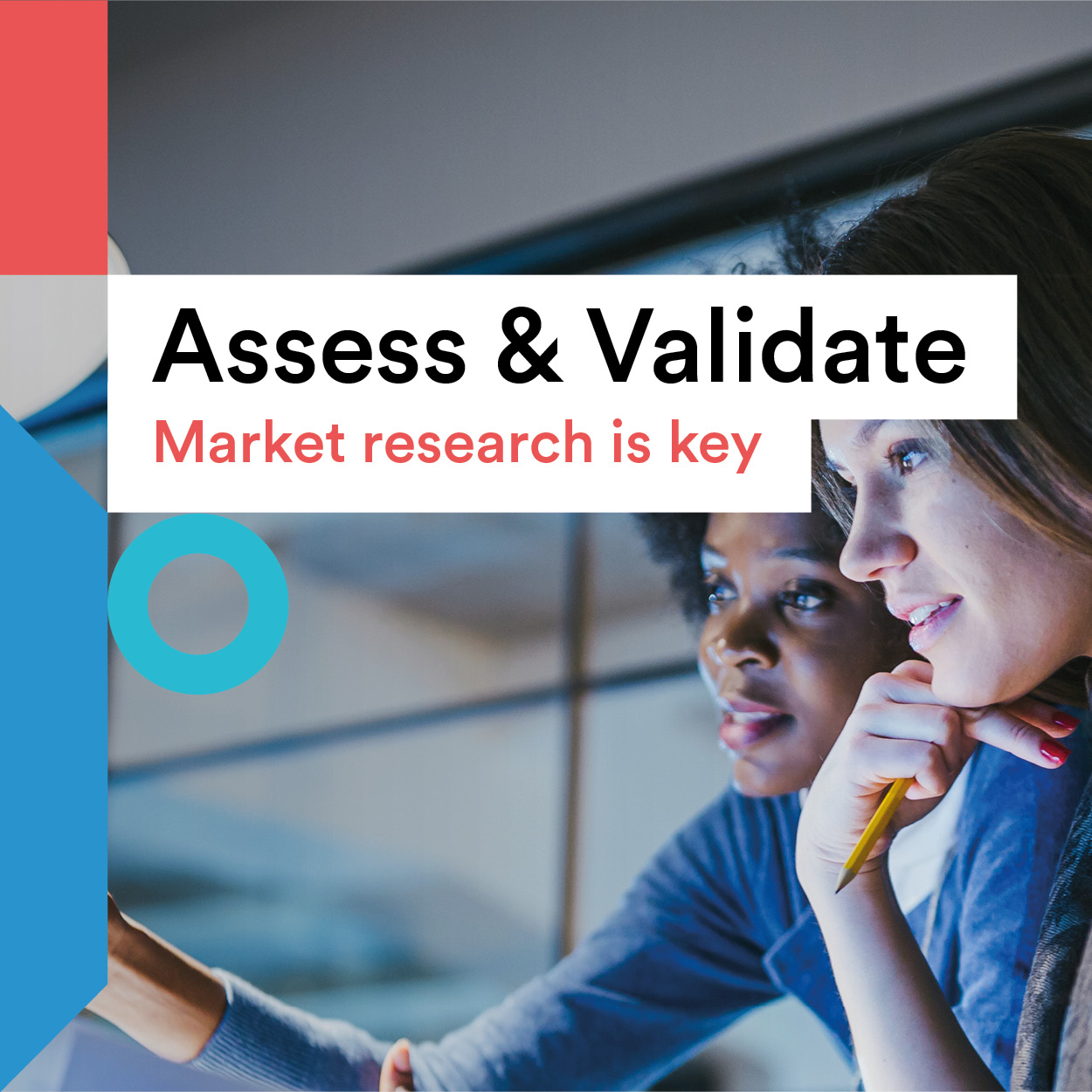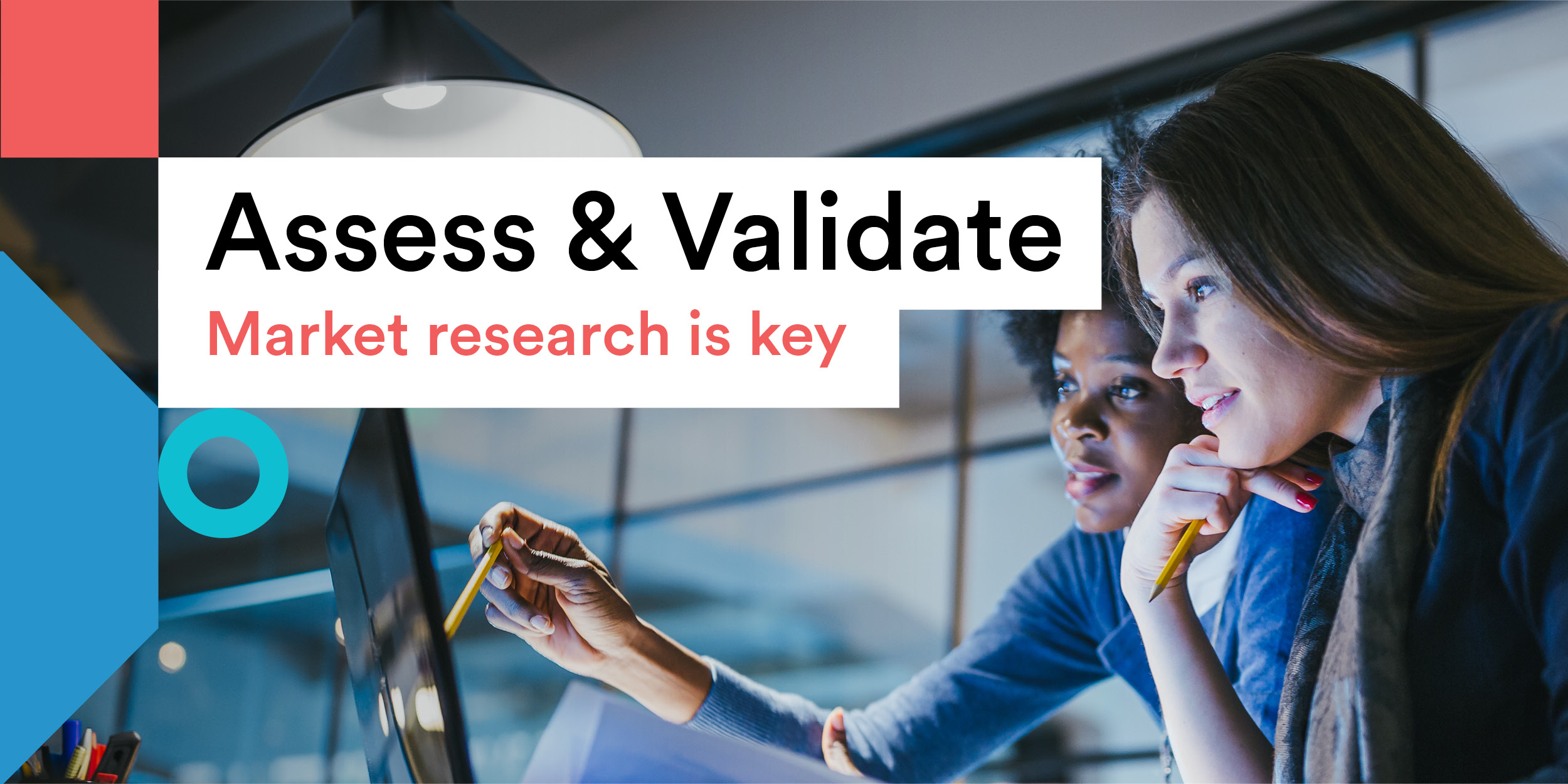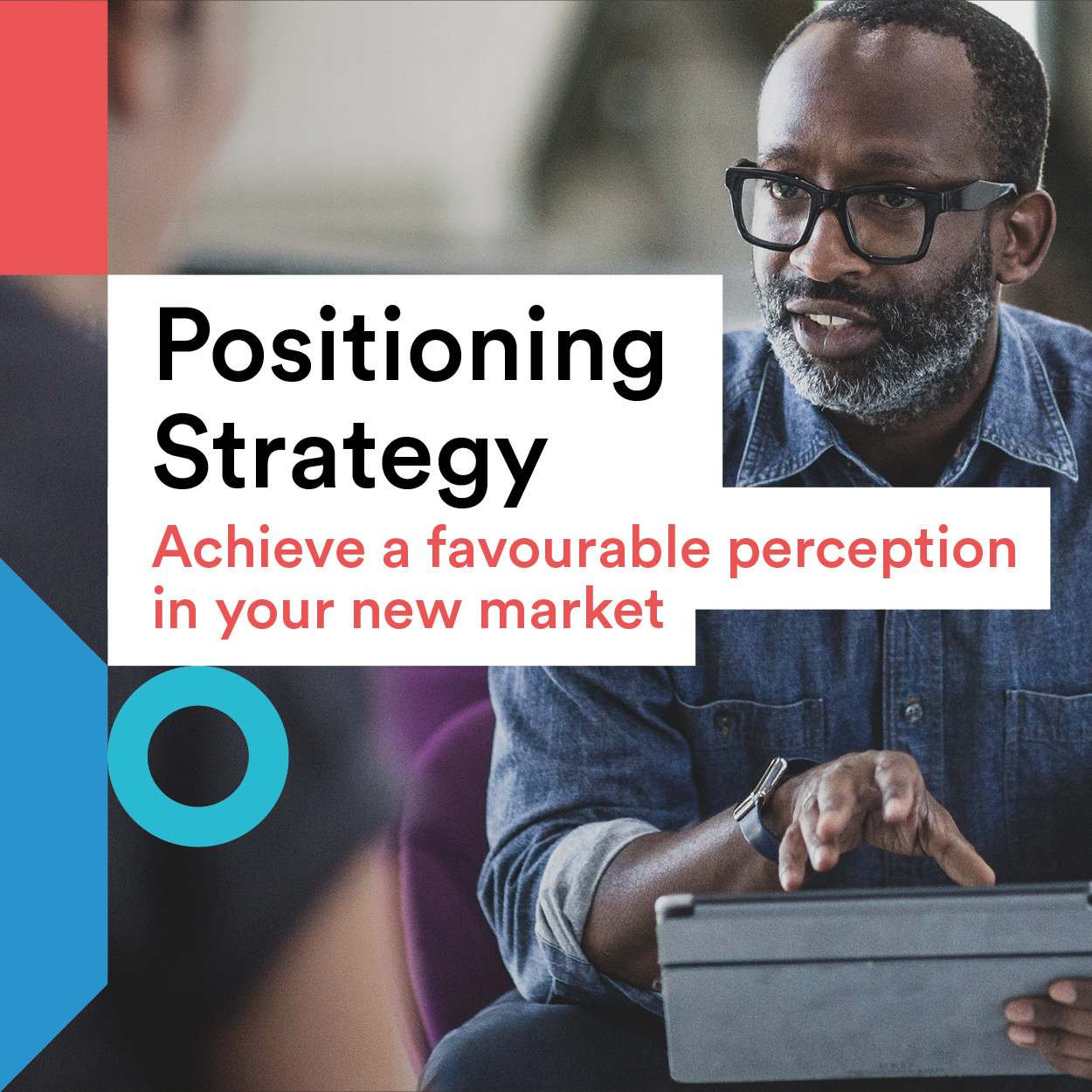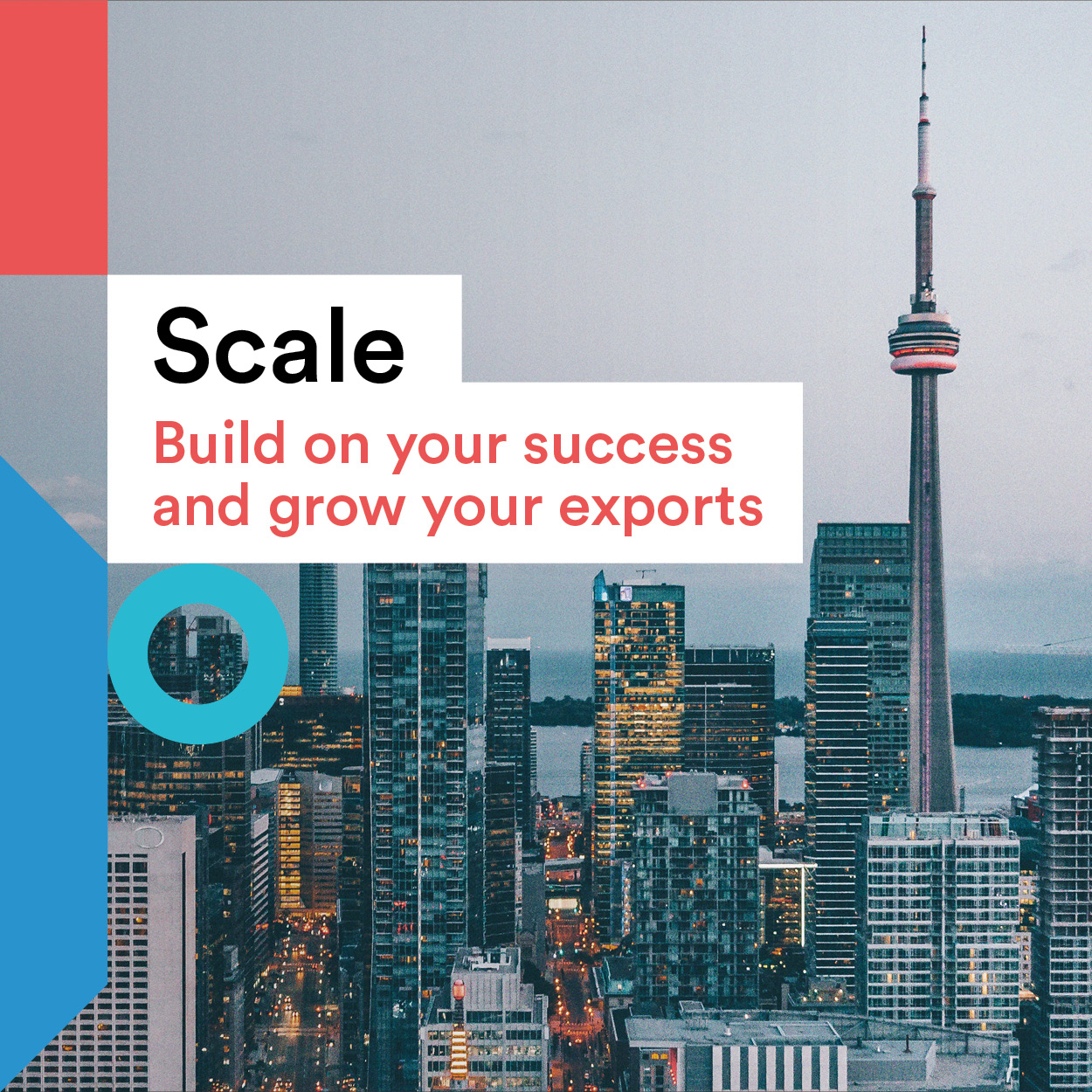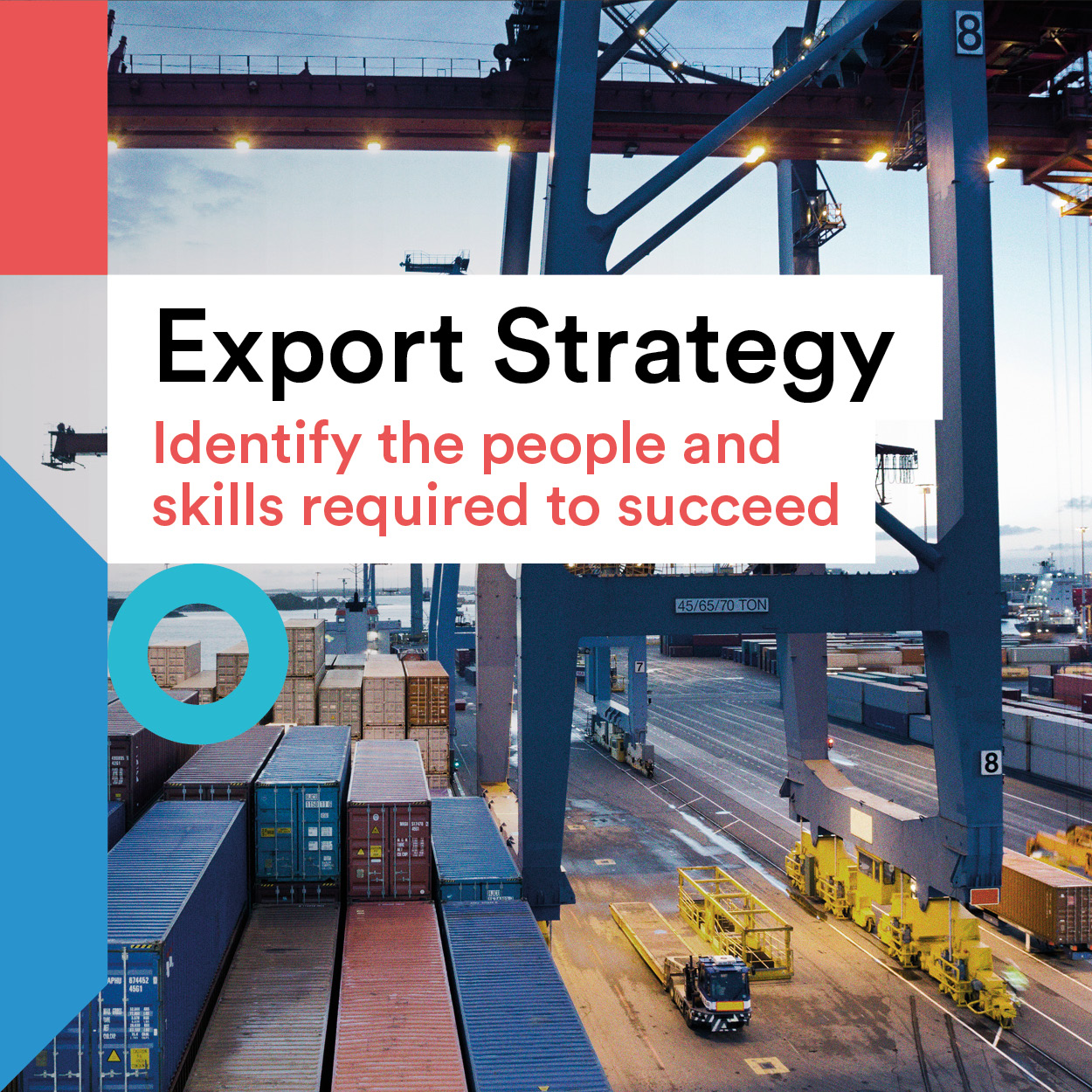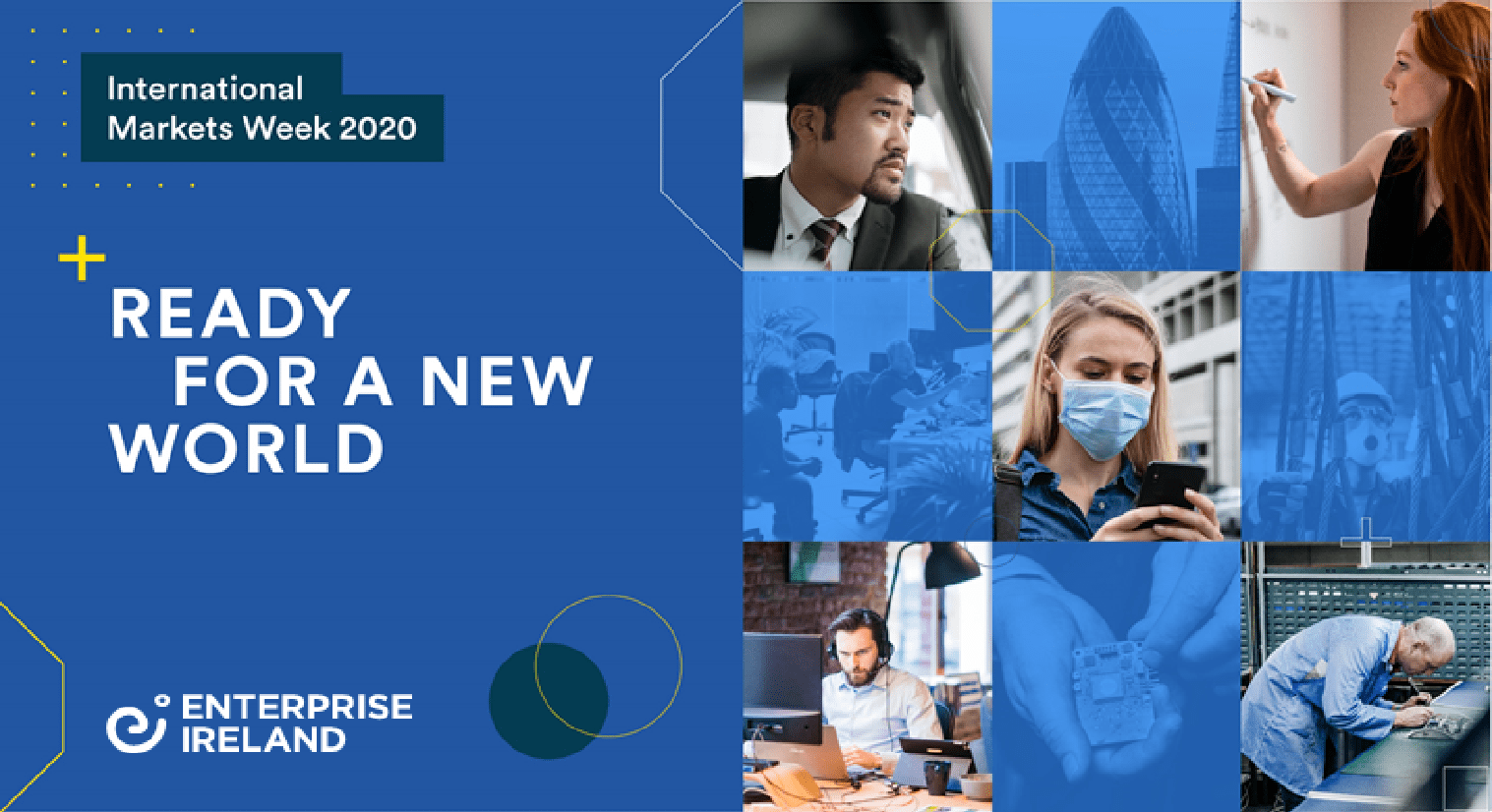Supporting Regional Development Critical To Future Jobs Growth

Resilience is a word we became used to in 2020 and it is an apt term to describe how Irish business responded to the dual challenges of the Covid-19 pandemic and the end of the Brexit transition period.
For thousands of businesses across Ireland, and their staff, it has been a tough, challenging year marked by disruption and uncertainty. But what has been remarkable is how Irish businesses have responded to the impact of Covid-19 and Brexit.
At Enterprise Ireland we work closely with the Irish manufacturing, export and internationally traded services sector. We invest in established companies and start-ups, we assist companies to begin exporting or expand into new markets and we back research and development projects creating future jobs.
This week we launched our annual review for 2020. The good news is that the companies we are proud to support employ more than 220,000 in Ireland. Despite the challenges faced in last year, nearly 16,500 new jobs were created, closely mirroring the 2019 outturn.
However, job losses were significantly higher than in previous years, resulting in a net reduction of 872 jobs across the companies we support.
There is no sugar coating the fact that it was a tough year for business. However, behind these statistics are individual stories of companies taking brave decisions to change their business model, reimagine their product offering and find new ways of doing business and connecting with customers to trade through the impact of Covid-19 and Brexit.
Enterprise Ireland has worked with these companies throughout the year to ensure viable companies have the liquidity, supports and advice they need to trade, and importantly, to sustain jobs.
Enterprise Ireland supported companies have a key role in the Irish economy. 65% of employment is outside the Dublin region and these indigenous Irish companies, many of which are world leaders in their field, are critical to delivering balanced regional economic development.
Powering the Regions is Enterprise Ireland’s strategy for regional development. It outlines specific plans for each region in the country, drawing on their existing enterprise base, their connections with third level institutions and their unique potential for growth.
The strategy is backed significant funding. This time last year more than €40m was allocated, in a competitive call, to 26 projects fostering regional entrepreneurship and job creation.
These included the Future Mobility Campus Ireland, based in Clare, which explores the potential of autonomous, connected and electric vehicles, UCDNova’s Ag Tech innovation centre in Kildare and the Clermont Hub in Wicklow which focuses on content creation and draws on the region’s established film and audio/visual track record. The 26 projects were supported under the Regional Enterprise Development Fund, which has seen €100m invested in similar projects since 2017.
Given the potential impact of Brexit, particularly in the Border region, 11 similar projects designed to cluster expertise and innovation were supported with €17m in support under the Border Enterprise Development Fund in 2020.
These were strategic initiatives, closely linked to government regional policy, with a medium to long-term focus on supporting regional enterprise.
However, due to Covid-19, Enterprise Ireland moved last year to provide more agile interventions to regional businesses assist them to reset and recover.
Ensuring that viable companies had the access to finance was an important necessity. Through the government-backed ‘Sustaining Enterprise Scheme’ Enterprise Ireland allocated €124m last year to support more than 400 companies employing more than 10,000 people. The majority of this funding went to regionally based companies.
Similarly, €8.2m in funding for 95 enterprise centres, which are critical to the start-up ecosystem and future job growth regionally, was made available in September.
Retail business across Ireland also benefitted from the Online Retail Scheme which saw 330 retailers allocated €11.8m in funding to enhance their online offering, reach new customers and increase sales.
Through a mix of strategic funding aimed at long-term enterprise development and more agile funding supports Enterprise Ireland has helped to sustain jobs throughout Ireland in 2020. We’ve also supported those sectors, such as cleantech, construction and life sciences which continued to grow and create jobs last year.
The pandemic will have lasting effects including how we work and where we work. Many of these long-term changes can complement strong local and regional economies. A key element of the Powering The Regions strategy was the potential of remote working and co-working hubs that Enterprise Ireland is committed to developing with our partners. That potential has been accelerated by the changing work patterns evidenced in the past year. Now, more than ever, having a strategic approach to enterprise development is vital, and Enterprise Ireland looks forward to the role it can play as we recover and build for the future.
By Mark Christal, Manager, Regions and Entrepreneurship at Enterprise Ireland.
Key questions to ask at your South Korean Market Advisor meeting
South Korea is a large, vibrant economy with a myriad of opportunities for Irish firms.
If you are considering doing business in South Korea, your first step should be a call with our team in Seoul.
The questions below were designed to help Irish businesses get the best out of their first Market Advisor call
- Are there any local regulatory requirements I should be aware of for our goods or services to enter your market?
- Would my goods/services’ USP still be relevant in your market as in Ireland/other markets?
- If we were to work with local partners, would they usually require exclusivity from us given the business norm in your market?
- What would be the timeline, given your experience, of identifying local partners?
- Should I expect to commit myself to travel to your region to meet with prospective partners/customers in person?
Set up a call with our team in South Korea today and also be sure to download our Going Global Guide
Enterprise Ireland’s top tips for entering the South Korean market can be viewed by clicking the graphic below.
New African Dawn: Launch of the Continental Free Trade Agreement
A new year usually brings with it hope, optimism and new resolutions. The first two weeks of 2021 have however been fraught with the on-going pandemic, Britain’s exit from the EU and increased protectionism and populism around the globe. In marked contrast with this tone, one continent is pushing forward with hope, optimism and new resolutions.
The first of January 2021 saw the launch of the African Continental Free Trade Area (AfCFTA). This milestone agreement strives for greater trade cooperation on the continent. The aim is to bring together 1.3 billion people in a $3.4-trillion economic bloc that will be the largest free trade area since the establishment of the World Trade Organization. This agreement comes into force, with support from 54 of the 55 countries recognised by the African Union (Eritrea being the sole exception) is a hugely positive move.
The Agreement establishing the AfCFTA was signed in March 2018 and of the 54 Member States of the African Union that have signed, 30 countries have deposited their instruments of ratification with the Chairperson of the African Union Commission.
The main objectives of the AfCFTA are to create a single market for goods and services, facilitate the movement of persons, promote industrial development and sustainable and inclusive socio-economic growth, and resolve the issue of multiple memberships, in accordance with the African Union’s Agenda 2063. The agreement lays a solid foundation for the establishment of a Continental Common Market.
AfCFTA presents a significant opportunity to boost intra-regional trade as well as increase Africa’s negotiating position on the international stage. Intra-African trade has always been relatively low. In 2019, only 15% of Africa’s $560-billion worth of imports came from the continent – compare this with a figure of 68% in the European Union (UNCTAD).
In addition, many African nations have struggled to develop better-enabling environments for attracting investment and it should follow that this agreement will help to make the continent an increasingly attractive location for foreign companies seeking to penetrate its huge market potential.
This landmark agreement is off the starting block but there is much to be negotiated to reach the desired goal of #OneAfricanMarket.
Under AfCFTA trading, with an aim to eliminate export tariffs on 97% of goods traded on the continent, tariffs on various commodities where rules of origin have been agreed will be drastically reduced and businesses of all sizes will have access to a much bigger market than they used to before. Non-tariff barriers (NTBs) to trade will also be addressed and a mechanism for reporting of NTBs has been put in place (www.tradebarriers.africa).
In parallel to the AfCFTA, the African Union has also introduced the Protocol on Free Movement of Persons.
Though it will be years before the AfCFTA is fully implemented, the significant steps that have been taken to get the agreement to this point should not be underestimated, particularly in the current difficult global environment. Increasing prosperity on the African continent will ensure that it continues to be a continent of great interest to Irish exporters.
Enterprise Ireland has been assisting Irish companies to navigate the Sub-Saharan African market through our office in Johannesburg, along with an established and growing network of industry specialists across the continent. Contact us to learn more about the opportunities for your business in this growing export destination.
Nicola Kelly, Senior Market Advisor, Middle East, Africa & India
Enterprise Ireland’s top tips for entering the Indian market
India has become the fastest-growing major economy in the world, recording an impressive 6.75% growth in GDP in 2017-2018.
If you are considering doing business in India, please be sure to explore our ten tips to enter the market below and also be sure to reach out to our team in New Delhi.
- Find the right partner – Identifying the right partner goes a long way in successfully navigating the complexities of the local business environment for a new entrant. A local partner can provide much-needed assistance in understanding the Indian market. This partner can give you valuable market insights on competition, regulation and other important issues. They can also introduce you to the network with the reach to target prospective clients without much investment on the ground.
- Enter the market with a long-term perspective – India is certainly not a place for businesses to make quick gains – you need to be invested for the long haul. Although it’s a huge market with a population of 1.3 billion people, including 400 million middle-class consumers, it has its share of challenges when it comes to market entry. Because India is such a huge and attractive opportunity, there is no dearth of competition. Additionally, given the complexity of the market, it takes time for the companies to understand the environment and develop the right strategy. On average it takes international companies nearly 3 years to successfully penetrate the market.
- Prepare yourself for a challenging legal regulatory landscape – India is ranked 63 among 190 economies in the ease of doing business, according to the latest World Bank annual ratings. The rank of India improved to 63 in 2019 from 77 in 2018. There have been considerable changes in Indian legal & regulatory laws making operations in India easier, however, it’s important to engage local knowledge and professional services to guide you through the legal, financial, bureaucratic, and cultural complexities.
- Invest in a senior-level/experienced local representative – India is a relationship & service-oriented market, meeting in person is very important in the region & essential for winning sales. Hiring an experienced business development manager from the industry has proven to be successful for many Enterprise Ireland clients across industries. The local employee can effectively build relationships with Buyers, Distributors & actively participate in promotional activities.
- Indian businesses are often hierarchical in nature – Decisions are generally made at the highest of levels. Therefore, unless the company director, owner or a very senior manager is present at a meeting, a decision is not likely to occur at that stage.
- Localise the product – India is a very diverse market and, therefore, it is hard to categorise the Indian buyer. Indian consumers are not only looking for the availability of products, they also want a better experience, services and ambience. Global brands have seen tremendous successes in India by localising their brand, product and/or services to meet the needs of the Indian consumer base.
- Price sensitive & value-conscious market – The Indian consumer is very ‘value-conscious’, evaluating benefits and quality vis-à-vis price. Until recently, price was the most important determinant of a purchase, given the low disposable income of most Indian households. But with the India growth story, there has been an evolution in what defines ‘value’ for Indian consumers. The key trigger for this shift has been the exposure to modern lifestyle through media and travel, giving them a perspective on various products and possible benefits.
- Vast geography & diverse culture – There are many Indias within India. India is a multilingual, multi-ethnic and pluralistic society, and vast cultural differences can be seen between North and South India. Additionally, India is a vast country, it often takes multiple sales partner/distributors in different regions to affectively cover the market.
- Meeting in person is very important in this region and there are a range of social norms you should know about – dress formally, a handshake is a standard way to greet men & women, carry a business card & address people by a title and their last name.
- 50+ Irish firms are already active in this market thanks to EI assistance, contact the local MA here
Enterprise Ireland is committed to helping Irish firms succeed in global markets and have industry experts on hand, ready to help you access the Indian market. Our Market Advisors are always available to support you and provide business expertise and on-the-ground knowledge.
For more, download our Going Global Guide
If you would like to know what to prepare ahead of your first MA call, click the graphic below
c2GRAN: Using Horizon 2020 support to reduce 5g energy consumption
“H2020 offers funding opportunities for projects at every scale and an open call can be easily found relevant to your idea.”
Ehsan Elahi, TSSG, Co-ordinator of the C2GRAN Horizon 2020 open call project
Overview:
- The European Union’s Horizon 2020 research and innovation programme has supported almost 150,000 participants in over 30,000 projects.
- The C2GRAN project received €75,000 in Horizon 2020 supports.
- The c2GRAN project aims to minimise energy consumption and carbon emissions related to the usage of 5G radio access networks.
Overview:
- The European Union’s Horizon 2020 research and innovation programme has supported almost 150,000 participants in over 30,000 projects.
- The C2GRAN project received €75,000 in Horizon 2020 supports.
- The c2GRAN project aims to minimise energy consumption and carbon emissions related to the usage of 5G radio access networks.
The European Union’s Horizon 2020 research and innovation programme has a budget of over €80 billion over seven years (2014–2020) and so far has supported almost 150,000 participants in over 30,000 projects with an average project grant of €1.9m.
Such huge numbers may seem intimidating to individual researchers who are seeking funding for small projects. But the good news is that through Horizon 2020’s system of cascade, or open call, funding there are extensive opportunities to access support for smaller projects.
Ehsan Elahi, a Senior Software Engineer at TSSG, is one of many researchers who has benefitted from the system. He received €75,000 for his six-month C2GRAN project, which aims to minimise energy consumption and carbon emissions related to the usage of 5G radio access networks.
“People are using 5G radio access networks for many things like watching HD videos, two-way video streaming, downloading or uploading huge data files. This requires consumption of a huge amount of energy which causes high levels of carbon emissions. C2GRAN aims to minimise the energy consumption and carbon emissions by using machine learning to auto-scale the available resources according to demands and migrating the resources to where renewable energy is being used,” explains Elahi.
The small project involved just two TSSG researchers and a mentor from the CONNECT centre at Trinity College Dublin, the world-leading Science Foundation Ireland Research Centre for Future Networks and Communications. CONNECT provided a state-of-the-art testbed for Elahi’s 5G experiments.
Refining the proposal
Elahi’s funding came through an open call under the Horizon 2020 5GinFIRE project, which provided almost €2.5m under four open calls for different areas.
“I applied to three of the calls for my C2GRAN project. On the third attempt I was successful,” says Elahi.
It was not a case of third time lucky for Elahi but rather the result of refining his proposal in the light of feedback from the assessors.
“The application process is really simple. The first step was to submit a summary of the proposal and to select a testbed. In our case that was TCD. Once they confirmed that the testbed was suitable for this project and they had enough resources to allocate to it, I submitted the final application to 5GinFIRE. That took just four weeks and you get very good, detailed feedback,” says Elahi.
“Using the feedback from my first two submissions I was able to refine the proposal and was awarded funding under the fourth open call.”
Benefits beyond funding
The benefits of being involved in a Horizon 2020 project, says Elahi, go well beyond the funding.
“The C2GRAN project was a fantastic opportunity to work with excellent researchers. During the six months of the project, I attended progress meetings where I shared and also heard some very good ideas, got new research directions and learned new tools as well.
“Overall the project was a big success and it led to follow up activities including another proposal, V2GRAN, which is the next step towards commercialisation of the concept.”
Elahi is currently participating in two further Horizon 2020 projects, E-Corridor and NGIatlantic. As one of the co-ordinators of NGIatlantic, he is in involved in managing five open calls.
“My experience of the C2GRAN process is now helping me a lot in managing open calls in the NGIatlantic project. I’m applying the lessons learned from the application process and from networking with excellent researchers,” says Elahi.
Elahi is keen to encourage others to take advantage of open call funding and advises them not to be put off by initial rejections.
“H2020 offers funding opportunities for projects at each scale and an open call can be easily found relevant to your idea. It is a very competitive process and the competition is increasing but I would say to other researchers, believe in yourself, never give up. Keep reapplying and improving your proposal based on the feedback you get.
“One of the essential things is to be focused and clear about the scope and implementation of your project. The proposal must include a workable business impact and a clear exploitation plan.
“Horizon 2020, and going forward Horizon Europe, offer great opportunities but I would advise researchers to start with the smaller open calls to gain experience before you consider coordinating a large project.”
For advice or further information about applying for Horizon 2020 support please contact h2020support@enterprise-ireland.com or consult www.horizon2020.ie
For advice or further information about applying for Horizon 2020 support please contact HorizonSupport@enterprise-ireland.com or consult www.horizoneurope.ie
Export Journey: Step 1 – Why Export?

In a post-Covid world access to international markets, buyers, distributors and information is now at the fingertips of Irish SMEs thanks to increased digitalisation.
When looking towards new markets, it is important to consider the potential benefits of exporting for your company such as;
1. Diversification of market and reduced vunerability
A well considered diversification plan can minimise a dependency on the domestic market and the potential exposure to domestic downturn.
2. Increased revenue and scale
Exporting opens channels to exponentially expand the home market and identify new markets to take advantage of globally. A larger market base delivers economies of scale, enabling you to maximise your resources.
3. Improved profitability
Your ongoing domestic operation should cover business-as-usual fixed costs, either directly or via other types of business financing, which should, in turn, facilitate a faster growth in your export profits.
4. Best practice and knowledge
Accessing global markets will provide additional benefits to an exporter, aside from increased revenues such as new ways of doing business, increased awareness of global best practice, cultural and international competitiveness, that could also bring benefits to your market offering in Ireland.
5. Domestic competitiveness
Considering your company’s export potential will increase its resilience against potential competition within the domestic market.
Export Journey: Step 2 – Assess & Validate
Before beginning your export journey you must clearly identify your target market. You may have preferences based on previous experience, understanding of the language or culture or simply some connection with the market, though a good starting point it’s not enough of a reason to export to this market.
Market Research will form the backbone of your export strategy as you begin to validate your plans.
The key elements for consideration are:
- What makes your product unique
- Who are your competitors in your selected research market?
- Who are the buyers in that market?
- How does your product compare in terms of pricing?
- How is the product sold in that market?
- What are the local regulations, certification for selling your product and can you currently comply?
- A clear understanding as to why you have selected this market as the potential first market.
What supports are available?
If your business is at an early development stage the Local Enterprise Office has the supports to help you plan, start and grow
If you are are already supported by Enterprise Ireland you can contact your Development Advisor here.
The Market Research Centre provides access to world class research databases to help client companies make better, more informed business decisions. Contact the Market Research Centre here.
Enterprise Ireland hosts events to assist companies’ growth plans – See our events calendar for details.
Our Market pages and Going Global guides provide expert insights and contact details for our overseas offices.
Learn how our Exporter Development team can support your growth.
Export Journey: Step 3 – Positioning Strategy
Your positioning strategy should set out what you will do to achieve a favourable perception in your new export market.
Typically companies will try to achieve the same brand positioning regardless of the market. A coherent positioning strategy can be hugely advantageous, so it’s important when reviewing the export potential of your products/goods or services to consider the following:
1. Customer profiles
- What is your current USP and will this translate to your new foreign export markets ?
- Do you understand your domestic customer profile? E.g. age profile, socio-economic grouping etc.
- Are there other significant demographic patterns to your product or service’s usage?
- Have you considered the need to modify your product/service to facilitate differences in language, culture and business environments?
- How do you plan to deliver your services to foreign markets ? In person, via a local partner or using digital resources?
2. Market Pricing and Value Propostion
- Consideration whether any necessary changes to make your product/service more appealing to foreign markets and customers?
- If you’re exporting services, what makes them unique within global markets?
- Have you benchmarked your services in a global context? Would they be considered to be world-class and stand up to stronger scrutiny?
- Have you considered the cost implications of servicing overseas markets? Including FX rates and fluctuations?
- Does your product have a shelf life and will this be impacted by time in transit?
- Will your packaging have the same impact in a foreign market or can it be easily modified to satisfy new demands?
- Are there any climatic or geographic factors that could affect the uptake of your product or service in other markets?
3. Route to Market
- Do you need special export licensing or documentation to export? i.e. technical or regulatory requirements localised to the market?
- Are there considerations for the safe transportation of your product to global markets ? i.e. specialized containers or packaging materials?
- Would transportation costs make competitive pricing a problem?
- How efficiently does your target market process incoming shipments?
4. Capacity to support
- In the event that your domestic/export demand increases beyond current projections, will you still be able to look after both markets?
- Will you be able to serve both your existing domestic customers and any new foreign clients?
5. Further considerations
- Do you require a local presence or representation?
- Will your products/service require local professional support or can this be done digitally?
- Will after-sales service be required ? Can it be easily sourced locally or do you have to provide it? Does you have the resources to provide it?
- Are there legal / IP implications to consider when entering global markets?
Once your positioning strategy is in development, it’s time to consider how to develop your export strategy and access your target market.
Export Journey: Step 6 – Scale
 You are now successfully exporting to your first market. Now begin to build on this success and grow your exports.
You are now successfully exporting to your first market. Now begin to build on this success and grow your exports.
You will now have built up a good relationship with the overseas market team and keeping up to date on buyer trends and external factors impacting these trends will enable you to stay competitive.
Factors to consider in your plans to scale exports:
1. Resources
Do you have the necessary resources both in terms of staff and finance to meet the demand of a new market?
2. Capacity
Do you have the manufacturing, packaging, logistics, linguistic capacity?
3. Environmental
Have you considered your carbon footprint; requirements of buyers?
4. Sustainable Growth
How will this impact your current financial standing? Will it strengthen or dilute your position in the market?
5. Adjacent Markets
Is there potential in the adjacent markets where buying patterns, pricing and local regulations may be similar?
How can Enterprise Ireland support your growth?
If you are are already supported by Enterprise Ireland you can contact your Development Advisor here.
The Market Research Centre provides access to world class research databases to help client companies make better, more informed business decisions. Contact the Market Research Centre here.
Enterprise Ireland hosts events to assist companies’ growth plans – See our events calendar for details.
Our Market pages and Going Global guides provide expert insights and contact details for our overseas offices.
Learn how our Exporter Development team can support your growth.
Export Journey: Step 4 – Developing your Export Strategy
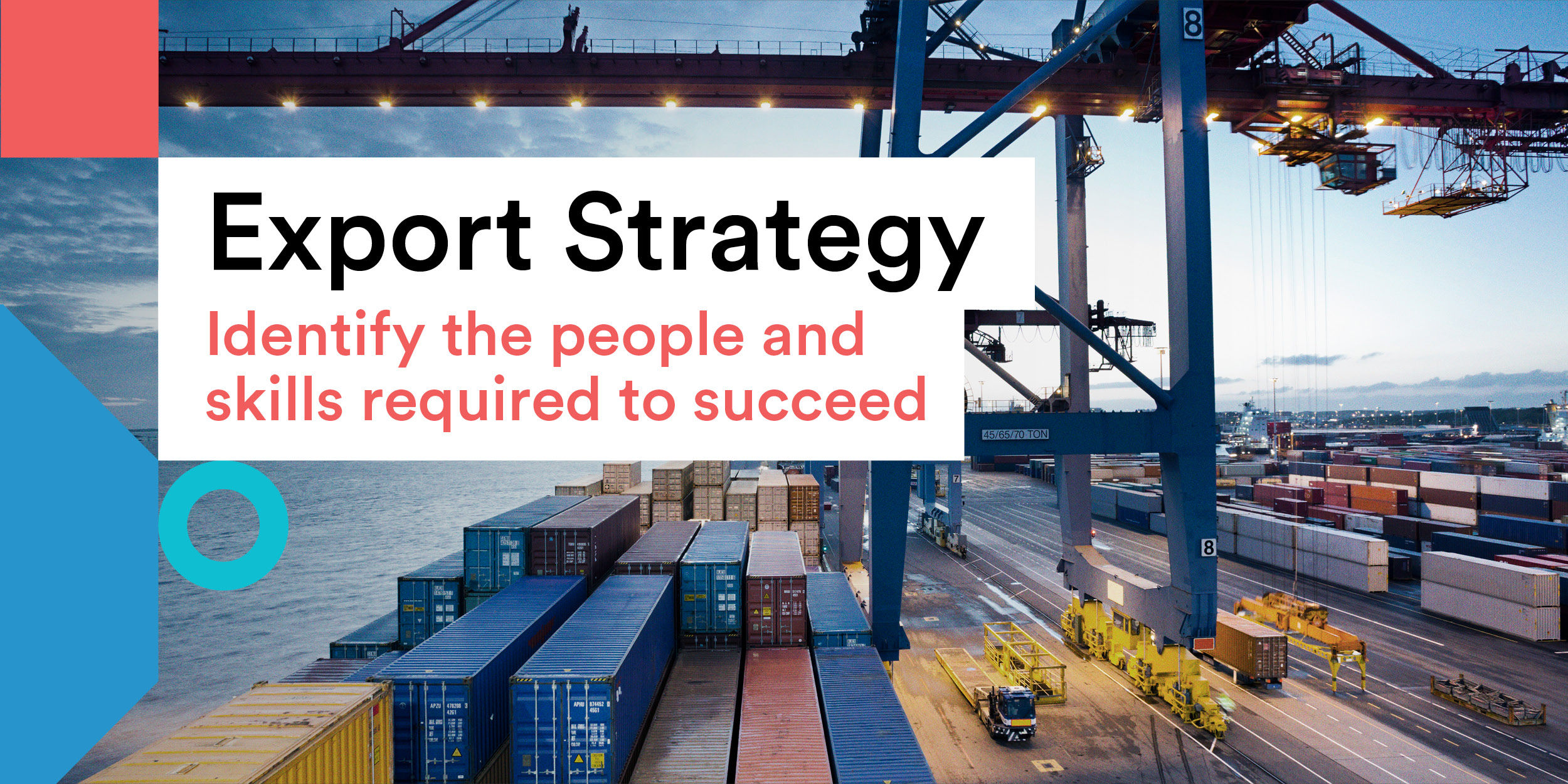
The next step is your export plan. You may have ideas but you need to clearly communicate them in writing so that your whole team is clear on their responsibilities. Having a plan laid out makes it easier to spot pitfalls, gaps and even additional opportunities!
The export plan is also key in seeking supports in term of financing or grants. Don’t overcomplicate it, keep it clear and simple.
The key elements of a successful export plan include:
1. The Vision
- What you are going to do. How you are going to do it. What your expected outcome is.
2. Human Resources
- Have you the staff, external support and expertise? Have you skills within your team to manage language and cultural differences?
3. Financial Resources
- Budget, Sales targets and Pricing – Consider the additional costs involved in selling into the overseas market. Establish a target price for the end user, taking into consideration currency, payment terms, freight and carriage charges, import duties and taxes, commission to partners and competitors’ pricing.
4. Target Market
- Why you have selected this market; who your buyers are.
5. Your Product
- Your USP and how it translates internationally. Are there external factors which could impact production or sales?
6. Market Entry
- Sales channels; marketing plan; regulations, language and local laws.
7. Monitoring and Developing the market
- Are you meeting sales targets?
8. What’s next?
- How do you plan to grow and scale?
Innovation and ambition take centre stage at International Markets Week 2020
In a major event to mark International Markets Week four Irish companies shared the stories behind their exporting achievements
The role played by innovation and ambition in helping companies to internationalise was the theme of “Ready for a New World”, a major virtual conference which marked the launch of Enterprise Ireland’s International Markets Week 2020.
More than 700 companies logged on for the panel discussion with the founders of some of Ireland’s most successful international exporters.
They provided insights into not just the scale of their ambition but of the ways in which they innovated, and in some cases pivoted, in order to achieve it.
Tim Houston, CEO of Clonakilty based Global Shares, expressed his ambition to see the fintech become a ‘unicorn’, or billion dollar company.
It started out in 2005 as a provider of services in the area of employee share options. By 2015 it had perfected and launched a platform to simplify the share ownership process for both employees and employers, all over the world. “Since then we have never looked back,” Houston told delegates.
Today it is one of a handful of global providers in its market and competes against major legacy providers such as Merrill Lynch, UBS and Morgan Stanley.
“We don’t have the big brand but we do have the speed to market and a great team.” – Tim Houston.
“We don’t have the legacy platforms that some of these big banks suffer from either, so that’s how we compete. And where we can’t compete with them we partner with them,” he explained.
It’s a strategy that has put the fintech on track to grow employee numbers from 370 currently to 1000 in the coming years.
Nicola Mitchell, CEO of Life Scientific, an agrichemical company, said her company was set up in 1995 to provide contract research services to a number of sectors but has grown by focusing on designing innovative versions of off-patent crop protection products.
In the process it has injected competition into an oligarchic market, to the benefit of farmers around the world.
Making the transition involved giving up the valuable contract work it carried out for multinational agrichemical clients in order to realise its strategy. It’s always a tough decision for any business but it has paid dividends for Life Scientific.
“We wanted to scale, we wanted to be global,” – Nicola Mitchell.
It did just that. Life Scientific Germany launched two years ago and went to Euro 10m sales very quickly while, in 2014 she sold half the business to InVivo, a Euro 6 bn French co-op with 5,000 employees, in exchange for market access in France. “Without this we wouldn’t have jumped from Euro2m to 60m. We’ve a very healthy business in France and a very healthy partnership,” she said.
“The single most important thing we can get right as a virtual type company which invests in R&D and sales & marketing alone, is to be able to find the best partners, whom we can work with the best, and go fast. (France) has been a great poster child for our global expansion.”
Kilkenny’s Modubuild transformed what was a domestically focused construction firm by winning its first contract overseas, to build a high tech data centre in the Netherlands, in 2015.
Today 70% of its turnover comes from exports. It provides both on-site modular construction and off-site construction at its facility in Castlecomer where it can design, build and ship at speed.
The company employs 300 people and has been helped in its overseas expansion by Enterprise Ireland’s teams on the ground, CEO Kevin Brennan told delegates.
“When we entered the Netherlands market in 2015 our turnover was Euro 1.5m. We have grown 60% year on year since we started working internationally and this year we expect it to be around Euro 34m, and Euro 50m next year,” he said.
Aerosol drug delivery company Aerogen employs 300 people, including 200 in Galway and 100 in commercial offices around the world, founder and CEO John Power told the conference.
Its products are included in all major manufacturers’ ventilators. “We’re the ‘Intel inside’”, he said. The company ships to 70 countries and, as a result of Covid, in the second two weeks of March alone received the equivalent of half a year’s orders.
But Power is intent on moving the business further up the value chain from being a drug delivery systems provider to becoming a speciality pharmaceutical provider too, he told delegates.
Innovation helped many of the companies showcased to power through Covid. Global Shares had already migrated its staff to remote working in 2019. This year has been the company’s “best new business year ever,” he explained.
“Our strategic plan is to focus on the four largest economies in the world, China, Japan, North America and Europe and we try and stick with just those.
“That said, during lockdown we won the largest company in the world, in Saudi Arabia, which we ostensibly won over the phone,” he said.
Covid has seen data usage grow exponentially, fuelling demand for data centres too. Once Modubuild won its first contract overseas in 2015 it continued to grow, both as a result of follow on business, as his clients grew, and by winning new clients.
“Once you break into it, it’s a good industry to be in. We gained a reputation as a company that could deliver internationally, so we are now working for multiple clients in multiple countries throughout northern Europe and we expect to move more towards southern Europe too as the data centre industry moves more towards African markets,” said Brennan.
As a design engineer by training, John Power’s primary innovation in Aerogen was to spot the opportunity to create an entirely new product category, aerosolised drug delivery for ventilated patients. As a result of this, the company has no direct competitors.
But whatever sector you are in, being the best is the only secret of success, he suggested.
“Multinationals utilise your product or service because you give them a better product or service than anybody else, no other reason,” – John Power.
Innovation, research and development is the key to delivering that, he said.
“We have a big team of research scientists in R&D, electronics, software and mechanical engineers. We keep developing new products, and new iterations of existing products, and diversifying across the hospital.”
In fact, the major innovation Aerogen has made is into funding its own drug trials, including one he predicts will have the biggest impact on neonatal care seen in 50 years.
“It’s about R&D and keeping moving up the chain. You want to be your own boss, you don’t want to be reliant necessarily on others. The way you do that is you innovate and come up with the best products in the world,” he said.
It’s a sentiment Kevin Brennan endorsed. Construction is an inefficient industry, which is why Modubuild invested heavily in its off-site manufacturing facility, bringing high tech construction back to a factory environment, with a team dedicated to innovating new ways to construct facilities.
That is paying dividends for its clients. “We just delivered a vaccine laboratory for a multinational client, designing and building it entirely in our factory and then shipping it out and constructing it on site in 10 days. That allows our client to get to market a year quicker than it would traditionally,” he said.
“It’s very important for us to be continually innovating, looking for new and quicker ways of delivering projects for our clients. – Kevin Brennan”
Enterprise Ireland chief executive Julie Sinnamon, who hosted the panel, said the common denomination in all of the companies featured was innovation, “not just in product or service but also in business model.”
But their success was about more than innovation alone, she added.
“What is also coming across really strongly is the importance of ambition. One of the big challenges we have is not having sufficient Irish companies of scale. Each of these panel members has a very clear view. They want to be in control of their destiny and they really have a very strong strategy to build a company of scale in Ireland. It’s great to see that being done in Dublin and the regions.”




